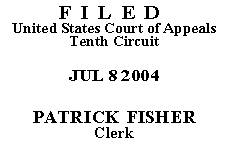

| WEI-KANG ZHOU,
Plaintiff-Appellant, v. PITTSBURG STATE UNIVERSITY, Defendant-Appellee. |
|
Plaintiff Wei-Kang Zhou, appearing pro se, appeals the district court's grant of summary judgment in favor of defendant Pittsburg State University (PSU) on his claims alleging national origin discrimination under Title VII, 42 U.S.C. §§ 2000e through 2000e17, and retaliation. Mr. Zhou also challenges the district court's denial of his motion to compel discovery. On appeal, Mr. Zhou argues that the district court: (1) erred in limiting the scope of his discovery to the three-year period of his employment; (2) erred in dismissing his claims for disparate treatment and retaliation; and (3) erred in granting PSU's motion for reconsideration on the issue of the denial of his arbitration rights.
We review the district court's grant of summary judgment de novo, applying the same standard under Fed. R. Civ. P. 56(c) as the district court. McKnight v. Kimberly Clark Corp., 149 F.3d 1125, 1128 (10th Cir. 1998). We review the district court's discovery ruling for an abuse of discretion. Motley v. Marathon Oil Co., 71 F.3d 1547, 1550 (10th Cir. 1995).
Initially, we hold that Mr. Zhou has waived his third issue. Mr. Zhou argues that the district court erred in granting the motion for reconsideration at "such [a] late date." Aplt. Br. at 27. Mr. Zhou, however, failed to raise this issue in his response before the district court. See R. Vol. 5, Doc. 159. As a general rule, this court will not consider an issue that was not raised before the district court. In re Walker, 959 F.2d 894, 896 (10th Cir. 1992). Mr. Zhou also argues that the district court erred in deciding the merits of the motion for reconsideration. But Mr. Zhou includes only one sentence in his brief to support this argument: "[t]he district judge erred in granting the reconsideration motion for the reason stated in the Order (See, Doc 175, p.10-11)." Aplt. Br. at 27. This provides us with a citation to the district court's order, but offers no explanation or support for this alleged error. Accordingly, this argument is waived. See Adler v. Wal-Mart Stores, Inc., 144 F.3d 664, 679 (10th Cir. 1998) ("Arguments inadequately briefed in the opening brief are waived."); see also Fed. R. App. P. 28(a)(9)(A) ("[Appellant's] argument . . . must contain . . . appellant's contentions and the reasons for them, with citations to the authorities and parts of the record on which appellant relies.").
With respect to Mr. Zhou's remaining issues, having reviewed the briefs, the record, and the applicable law pursuant to the above-mentioned standards, we conclude that the district court correctly decided this case. We therefore AFFIRM the challenged decisions for substantially the same reasons stated by the district court in its Memorandum and Order of December 19, 2002, and its Memorandum and Order of March 24, 2003.
PSU's motion for clarification of the appellant's statement of issues is denied as moot.
Entered for the Court
Circuit Judge
*. This order and judgment is not binding precedent, except under the doctrines of law of the case, res judicata, and collateral estoppel. The court generally disfavors the citation of orders and judgments; nevertheless, an order and judgment may be cited under the terms and conditions of 10th Cir. R. 36.3.
2. The Honorable John L. Kane, Senior District Judge, United States District Court for the District of Colorado, sitting by designation.